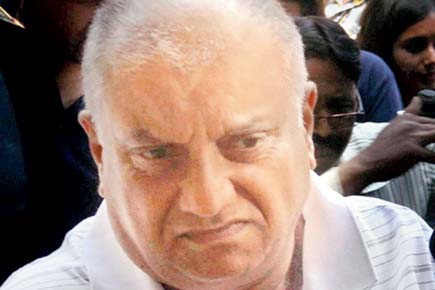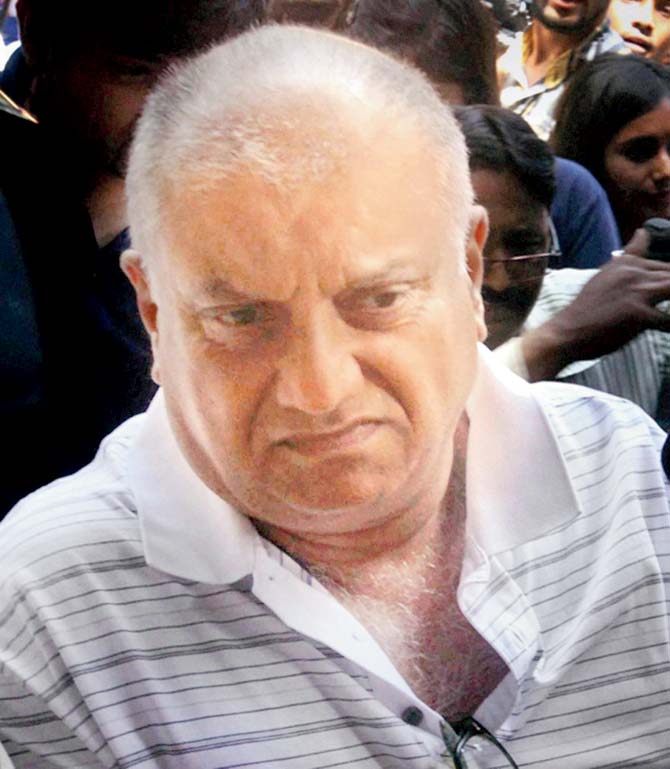Saturday's polygraph test reveals growing mistrust between Indrani and Peter Mukerjea -- contradicts his "I trusted her blindly" claim on TV interview

New Delhi: Peter Mukerjea’s polygraph or lie detector test by the Central Bureau of Investigation (CBI) in Delhi on Saturday afternoon revealed a growing mistrust between him and his wife, Indrani Mukerjea, co-accused in her daughter Sheena Bora’s murder.
ADVERTISEMENT
Also read: Sheena Bora murder: Peter Mukerjea undergoes lie detector test

Peter Mukerjea
Sources within the CBI, whose officers offered questions for a detailed polygraph test, told this paper that the revelations were contrary to what the former media baron had said in an interview to a television channel. He had described his relations with Indrani as “more than cordial” and said he “trusted her blindly”.
The tests revealed in fact, that for the last two years, Peter had lost faith in her. He expressed his growing “dissatisfaction” with Indrani during the test, because she “maintained relations with both her ex-husbands” and “often kept Peter in the dark”.
In Kolkata, Indrani’s first husband, Siddhartha Das, in a sensational revelation to CBI officers, had said he was in touch with Indrani till 2012 — the year Sheena was murdered — and even asked her why she committed the murder. To which, Indrani — claimed Das — asked him: “Did you even bother all these years to find out about your children (Mikhail and Sheena). They were as good as dead to you. So why bother now?”
There are chances that Das too could be put through a polygraph test by CFSL scientists in Mumbai, it is learnt. CBI sources said they put to Peter questions surrounding the crime, sought intricate details of his daily conversations with Indrani and wanted him to explain some of the statements he made relating to the funds he has saved in foreign bank accounts.
A scientist from CFSL, armed with questions from the CBI, conducted the test on Mukerjea. Only two individuals were in the room with him. The aim of such a test is to see if the person is telling the truth or lying when answering certain questions. Up to six censors can be attached to the person while an expert puts questions to him/her.
The machine in which the multiple (“poly”) signals from the sensors are recorded on a single strip of moving paper helps record the individual’s breathing rate, pulse, perspiration and blood pressure. The polygraph examiner studies the graphs to see if vital signs have changed significantly during any of the questions. Usually, a significant change like faster heart rate or rise in BP can indicate that the person is lying.
The CSFL is likely to submit its report to the investigating agency on November 30. CBI sources said whether Peter was deceptive or not can only be ascertained after this. “A change in a person’s consciously-held feelings produces a psychological defence reaction in the form of physiological changes in his blood pressure, pulse rate, respiration and electrodermal response (GSR),” a CBI officer said after the test.
The agency will have to produce Peter before a special court in Mumbai on Monday.
 Subscribe today by clicking the link and stay updated with the latest news!" Click here!
Subscribe today by clicking the link and stay updated with the latest news!" Click here!






